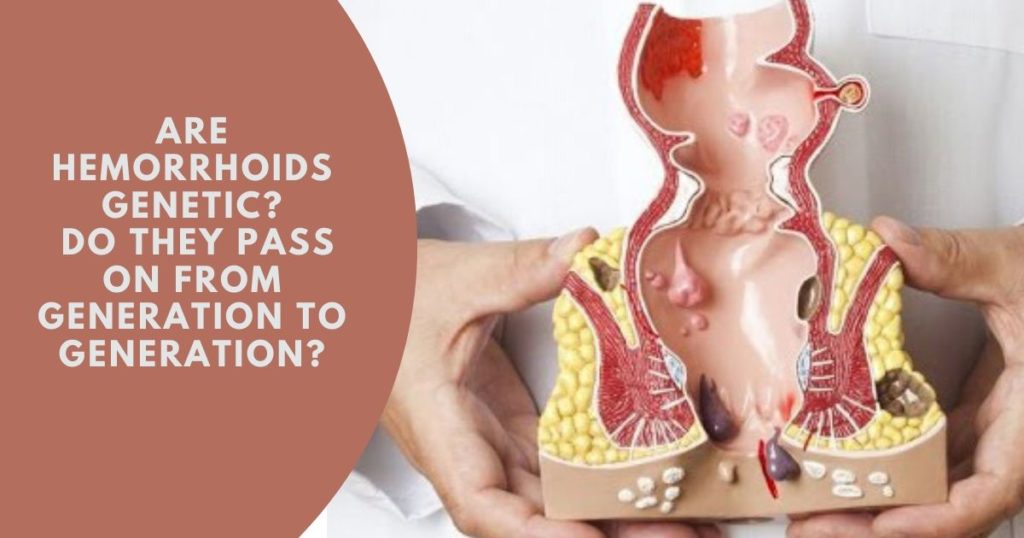Piles or hemorrhoid, as we know, is the inflammation and swelling of the veins that are present in and around the anal region. The size and location of the piles can vary from person to person. Many observe that members of their family have hemorrhoids and this leads to thinking that hemorrhoids may be genetic. Are hemorrhoids genetically passed?
Are Hemorrhoids genetic?
This is a completely valid question because, in some families, your grandparents and one or both of your parents might have had hemorrhoids at some point in their time. It is this thinking that leads many to think that there is a genetic predisposition in hemorrhoids.
But actually, unlike cancer, diabetes, heart disease, etc. there is no genetic factor that comes into play in hemorrhoids. If many people in your family have hemorrhoids, it is merely a coincidence and has nothing to do with hereditary causes.
So what causes Hemorrhoids?
Chronic constipation, obesity, bad food habits, sedentary lifestyle, and pregnancy are certain conditions where excessive pressure is applied to the veins of the anal region which leads to the formation of hemorrhoids.
Most factors outlined above except obesity do not have a genetic disposition. Obesity, however, might run in the family genetics and hence can be interpreted as something that can cause hemorrhoids indirectly due to another genetic factor. It also needs to be understood that obesity can occur even if it does not run in the family and this is mainly due to poor lifestyle habits. The majority of obese patients in modern times have got obesity not due to genetics but because of leading a sedentary lifestyle coupled with consuming too much junk foods.
Also within a single family, we normally practice the same food habit. If the food habit is unhealthy, and also since every member shares the same genetic trait in terms of body shape and metabolism, this can manifest in constipation leading to piles.
Are Hemorrhoids due to pregnancy hereditary?
Pregnancy causing hemorrhoids is classified as abnormal hemorrhoids and there are some studies that state that hemorrhoids caused due to pregnancy may be hereditary. However, this notion finds no common agreement among medical scholars. Since hemorrhoids due to pregnancy resolve itself after pregnancy in most of the cases, there is no need to worry.
So we can safely conclude that hemorrhoid is non-hereditary and it does not pass from one generation to another.
